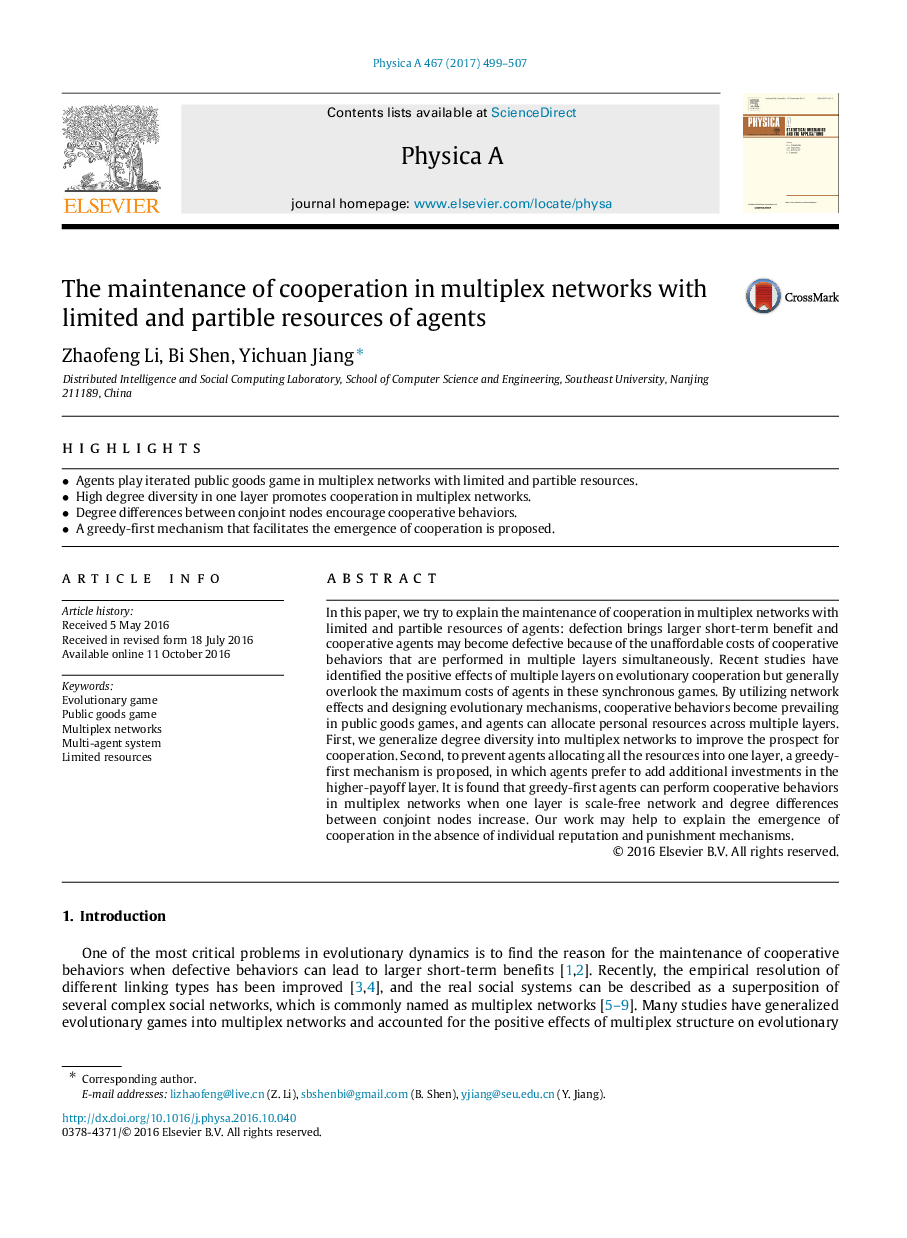| Article ID | Journal | Published Year | Pages | File Type |
|---|---|---|---|---|
| 5103450 | Physica A: Statistical Mechanics and its Applications | 2017 | 9 Pages |
Abstract
In this paper, we try to explain the maintenance of cooperation in multiplex networks with limited and partible resources of agents: defection brings larger short-term benefit and cooperative agents may become defective because of the unaffordable costs of cooperative behaviors that are performed in multiple layers simultaneously. Recent studies have identified the positive effects of multiple layers on evolutionary cooperation but generally overlook the maximum costs of agents in these synchronous games. By utilizing network effects and designing evolutionary mechanisms, cooperative behaviors become prevailing in public goods games, and agents can allocate personal resources across multiple layers. First, we generalize degree diversity into multiplex networks to improve the prospect for cooperation. Second, to prevent agents allocating all the resources into one layer, a greedy-first mechanism is proposed, in which agents prefer to add additional investments in the higher-payoff layer. It is found that greedy-first agents can perform cooperative behaviors in multiplex networks when one layer is scale-free network and degree differences between conjoint nodes increase. Our work may help to explain the emergence of cooperation in the absence of individual reputation and punishment mechanisms.
Related Topics
Physical Sciences and Engineering
Mathematics
Mathematical Physics
Authors
Zhaofeng Li, Bi Shen, Yichuan Jiang,
